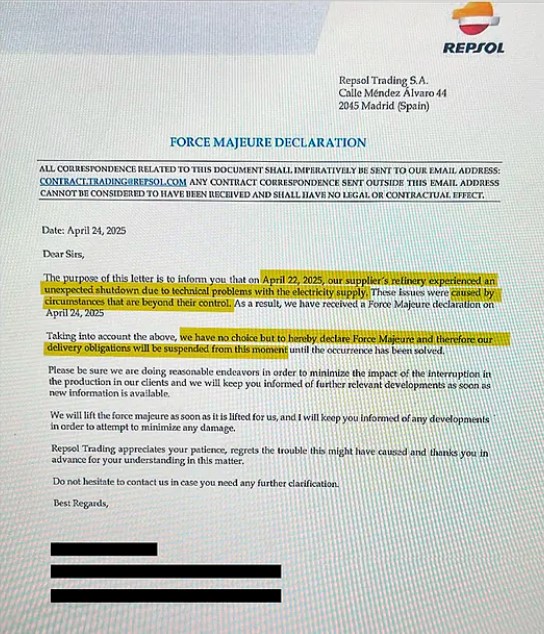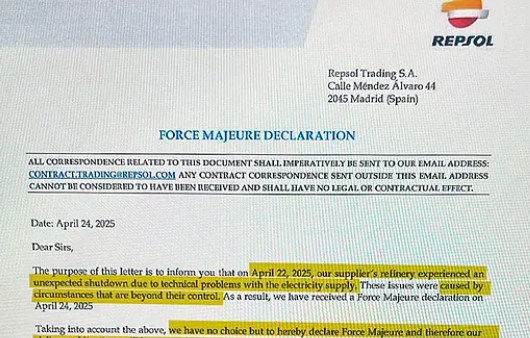An unexpected power outage on April 22, 2025, shut down Repsol’s major refinery in Cartagena and highlighted the vulnerability of Spain’s energy infrastructure. The incident, which forced Repsol to suspend product deliveries and activate a “force majeure” clause, occurred amid a week of instability in the national power grid. The question now arises: Did Spain’s ambitious green energy transition play a role in these outages?
That Tuesday saw more than just the outage in Cartagena. At the same time, Transport Minister Óscar Puente expressed concern on X about “excessive voltage” in the power grid, which was causing disruptions to high-speed train services. These events appear to be linked to a nationwide imbalance in the power grid, which Red Eléctrica attributed to a sudden loss of energy production.

Although the exact cause of the power outage remains unclear, experts point to a recurring pattern: an oversupply of solar power during the midday hours that exceeds demand. This phenomenon regularly forces Red Eléctrica to curb production at solar parks to maintain grid stability – a situation the industry has been warning about for some time.
The irony: Just six days before the blackout, Spain celebrated a historic milestone when it was able to cover its entire electricity demand from renewable energy on a weekday for the first time. This success now raises controversial questions. Is the rapid expansion of solar and wind energy, without corresponding investments in grid infrastructure and flexible balancing technologies, leading to increasing system instability?
A senior energy industry executive warns: “In a system like Iberia’s, which is very weakly connected to the rest of Europe, the continued entry of solar and wind power must be accompanied by technologies that offer flexibility when replacing gas and perhaps nuclear power, in order to offset the natural imbalances that upset the generation-demand equation.”
The industry’s reaction to the Cartagena incident is telling. An international oil and gas trading company described the activation of the “force majeure” clause as “absolutely anomalous” – an event that normally only occurs in extreme weather or unforeseeable disasters. Industry insiders confirm that power outages of this magnitude, which paralyze critical infrastructure such as refineries, are extremely rare.
Last week’s events – two blackouts of varying intensity affecting both energy and transport infrastructure – underscore the urgent need to ensure the stability of Spain’s electricity grid. While the green energy transition is undeniably an important step towards a more sustainable future, these incidents demonstrate the need to create a robust and flexible framework to manage the volatile nature of renewable energy and ensure security of supply. These events have given new urgency to the debate on how Spain can achieve its ambitious climate targets while ensuring a reliable energy supply.




